Table of Contents
- Key takeaways
- Understanding light needs of houseplants
- How to water your houseplants the right way?
- The role of humidity in houseplant health
- Simple tips to balance light, water, and humidity
- Conclusion
Key takeaways
- Maintain a balance of light, water, and humidity to make your houseplants healthy and fresh.
- Monitor your plants at regular intervals to learn their varying needs.
- Seasonal care adjustments lead to healthier growth and freshness.
- Purchasing from reliable sources like the top plant nursery in Indore results in healthier plants.
Houseplants add life and serenity to any house. Their soft leaves and soothing presence give every room a warm, cozy look. But to have them healthy and thriving, you must know one easy thing — their light, water, and humidity requirements.
Therefore, a lot of people think that caring for plants is difficult, but once you get to know how these three components interact with each other, it’s easy and fun. Whether you purchase your plants from the best plant nursery in Indore or cultivate them from tiny cuttings, this article will guide you to provide the ideal care they require.
Understanding light needs of houseplants
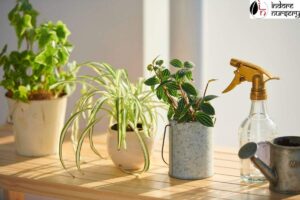
Light is the key to a plant’s existence. It is their “food” in the form of photosynthesis. Without sufficient light, plants are unable to grow healthy or develop green leaves. But not all plants require the same quantity of light.
Let us learn about the three principal types of light your houseplants may require:
- Bright Light (Direct Sunlight): These plants adore sunlight. Place them close to a window where sunlight falls directly upon them for several hours a day. Examples are succulents and cacti.
- Medium Light (Indirect Sunlight): Most indoor plants prefer bright but indirect light. This implies they love a bright room, but direct sunlight should not fall on their leaves.
- Low Light: There are some plants that can thrive under extremely low light. Those are ideal for corners or small window rooms. But “low light” does not equate to “no light” — they do require some light to remain healthy.
Tip: To prevent uneven growth, rotate your plant every few weeks so all sides receive the same amount of light.
Furthermore, if you’re planning to buy online indoor plants in Indore, always read their light preferences before placing them at home. The right lighting spot makes all the difference between a thriving and a struggling plant.
How to water your houseplants the right way?
Watering is another area where many plant owners make mistakes. Some water too often, and others forget altogether. The truth is, each plant has its own water requirement.
Here’s an easy way to do it correctly:
- Check the Soil Before Watering: Insert your finger a little over an inch into the soil. If the soil is dry, water time. If it’s still damp, wait a couple of extra days.
- Use Room Temperature Water: Cold water will shock the roots, and extremely hot water will damage them. Room temperature is always the best option.
- Ensure Proper Drainage: Ensure that your pot is equipped with drainage holes at the bottom. Excess water should easily drain away, avoiding root rot.
- Avoid Overwatering: Overwatering is perhaps the most frequent cause of death for plants. Keep in mind that it’s simpler for a plant to bounce back from dryness than from being waterlogged.
Various plants require various conditions. For example, tropical plants adore moist conditions, whereas desert plants require dry conditions between waterings. However, if purchasing from an online Indore nursery, look at their care guide or consult the vendor for particular watering needs.
The role of humidity in houseplant health
Humidity is the degree of moisture in the air. Most houseplants are from tropical regions, so they love a humid atmosphere. Indoor air, though, with air conditioning or heat running — is very dry.
Here’s what happens due to humidity:
- Low Humidity: Leaves will become brown or crispy around the edges, and growth becomes slower.
- High Humidity: Fungal problems will be seen, particularly if there is poor air circulation.
Methods to Raise Humidity Naturally
- Put a water tray in front of the plant. As the water evaporates, it increases the humidity in the air.
- Plant in clusters. If plants are grouped together, when they transpire (shed moisture), they keep one another humid.
- Mist the leaves periodically, particularly in dry periods.
Additionally, if you reside in a city where the air shifts seasonally, such as Indore, your plants will require special attention. In dry months, emphasize humidity, and in the monsoon, good airflow to prevent the growth of fungi. For fans of seasonal plants in Indore, the balance of humidity becomes even more critical since every season alters the indoor climate.
Simple tips to balance light, water, and humidity
Caring for plants is not a matter of rigid rules; it’s a matter of watching and responding. Here are some simple steps to achieve the ideal balance:
- Watch Your Plants Frequently: Check for such indications as yellow leaves, drooping, or dryness. These are hints at what is lacking — light, water, or humidity.
- Adjust according to Seasons: Plants tend to require more water and humidity during summer and less in winter. Their light requirements can also vary as sunlight patterns change.
- Use the Appropriate Pot and Soil: A well-draining, breathable pot controls the moisture. Use soil appropriate for your plant type — sandy for cacti and succulents, rich for tropicals.
- Maintain Airflow Consistent: Good air circulation avoids fungal issues and maintains humidity in check. Just don’t place plants in front of fans or AC units.
- Develop a Routine: Make a weekly plant inspection a routine. After you’re in the habit, it’s easy to maintain them.
Moreover, plants communicate through their appearance. Droopy leaves might say, “I need water.” Brown tips might mean “I’m too dry.” Pale leaves may be asking for more light. Listen to these signs, and you’ll soon develop a natural sense of plant care.
Conclusion
Taking care of houseplants is not merely watering them; it’s more of a matter of knowing their balance of light, water, and humidity. Therefore, if you know this, your plants will grow amazingly well. Whether you purchase from the best plant store in Indore or shop for an online plant nursery in Indore, a bit of patience and nurturing will make your greens green and lively.

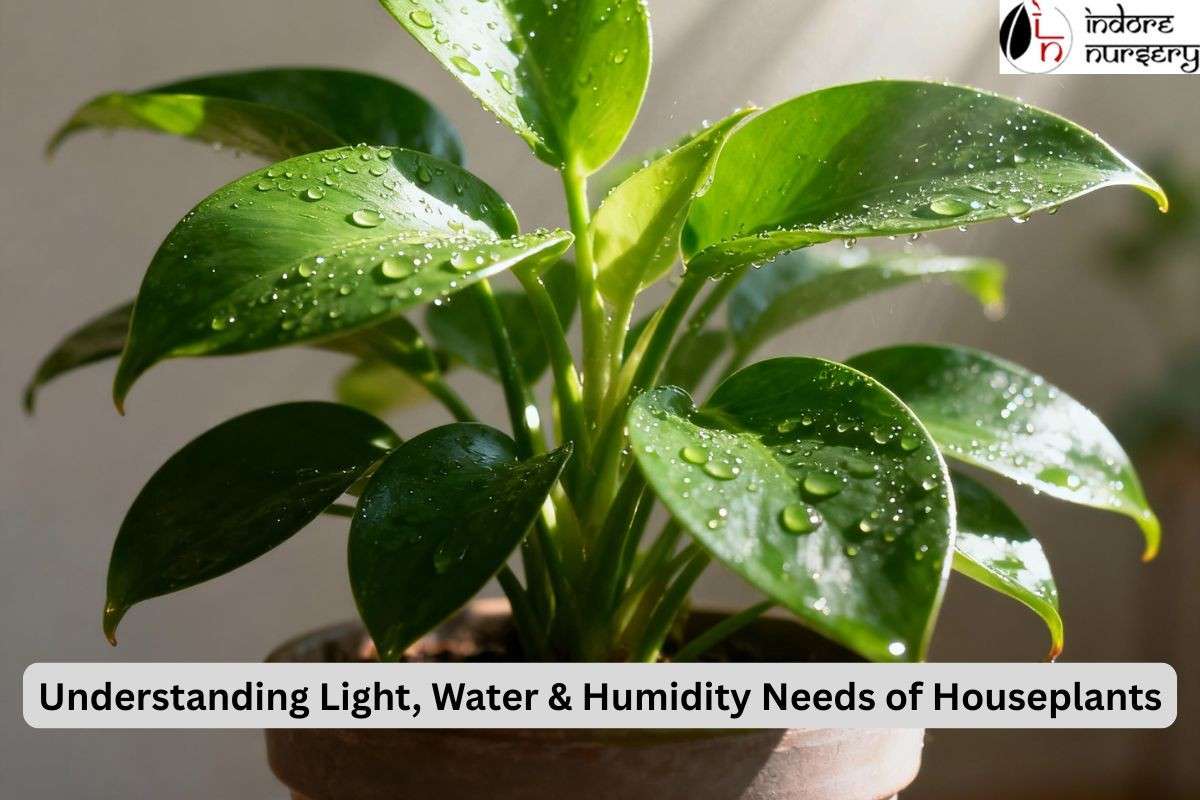



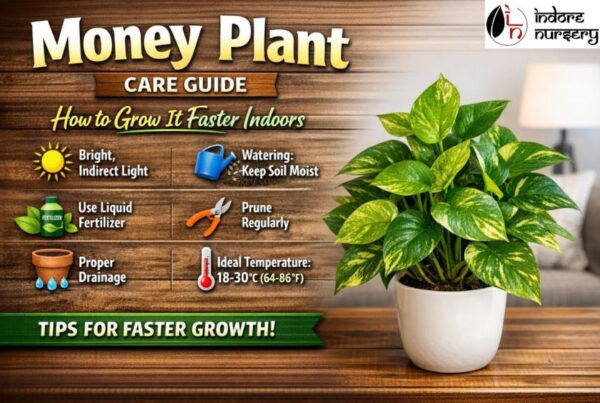
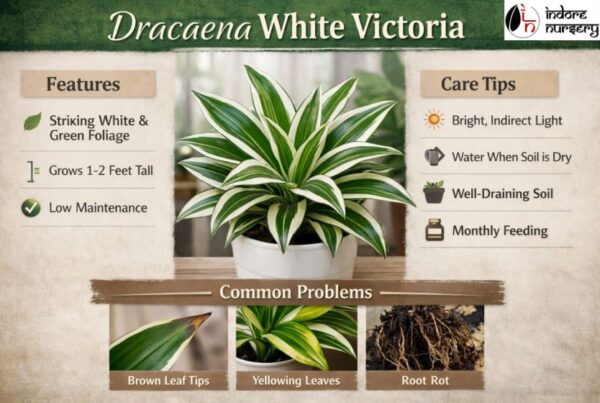


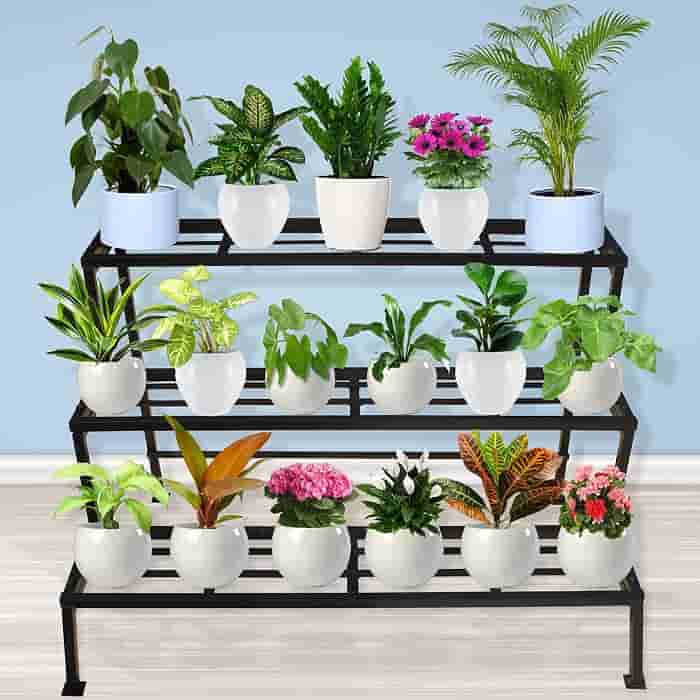
Recent Comments